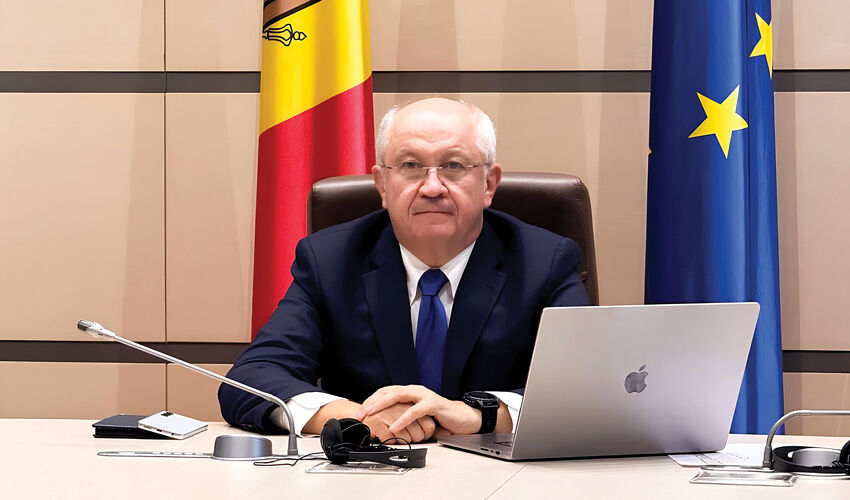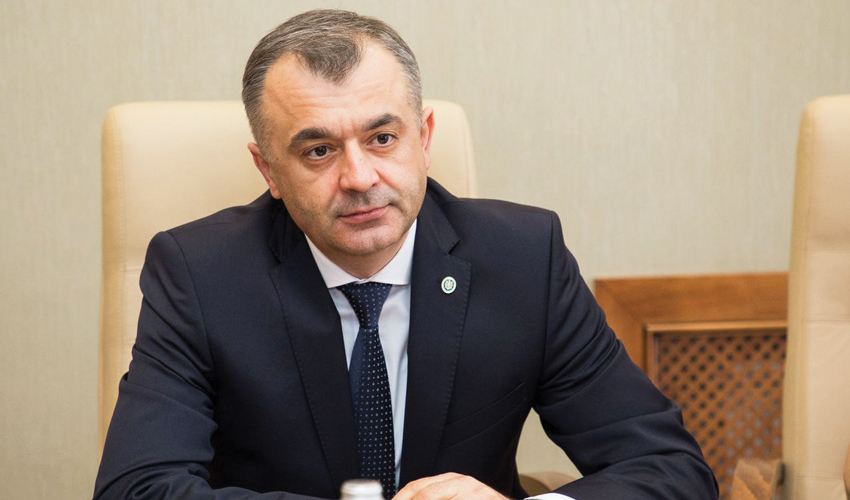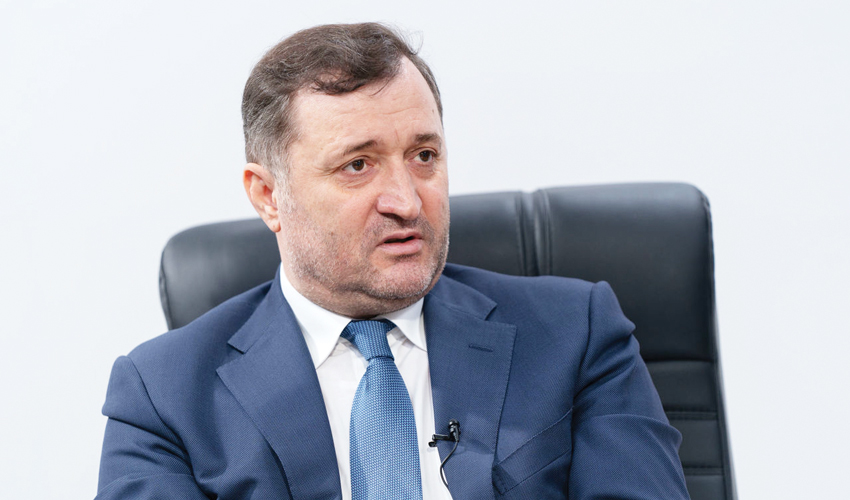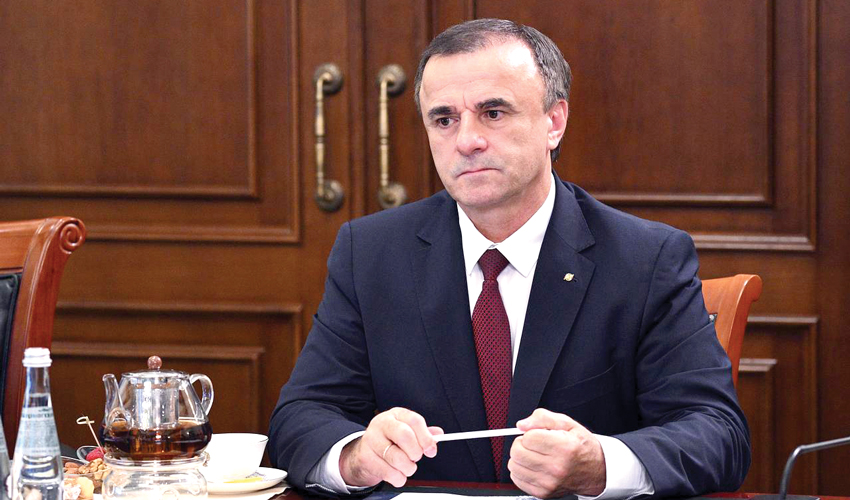
Alexandru Munteanu
The candidate for prime minister, Alexandru Munteanu, announced the composition of his cabinet and his activity program at the beginning of the week. In a blitzkrieg mode, he held consultations with professional associations, civil society and parliamentary factions. The meetings with the opposition showed that no faction is ready to unconditionally support him or his program.
As one participant aptly noted, the “consultations” were more ritualistic: “you pretend to argue, and I pretend to listen”. Nevertheless, they allowed Muntean, who had been living abroad for a long time, to familiarize himself with the alternative agenda.
The Logos Press interlocutors generally assessed the composition of the cabinet with restraint, but the government’s program provoked sharp criticism. In their opinion, the document looks like a set of slogans hastily assembled into a single text. It has more pathos than pragmatism – it is more of a political manifesto than a management tool. There is no explanation of how it will “stimulate investments of up to 4 billion euros”, “increase the value of exported goods and services to at least 50% of GDP” or “expand irrigation networks to an area of at least 50,000 hectares”. There is only a promise that this will happen.
The PAS explained it simply: “We wanted the program to be as clear as possible for citizens and set out in simple language”.
But it does not show a strategic vision for the future. Therefore, talk that the new government may find itself in a situational role of a “sacrificial cow” does not make sense at all. After all, it will have to implement a number of unpopular reforms and measures. Although Munteanu believes that “reforms do not have to be painful”, it is literally a test of endurance for his government.
Logos Press asked former Moldovan prime ministers to assess the presented priorities of the new government and how realistic the stated goals are, based on their own experience as prime ministers and their knowledge of the internal mechanisms of power.
Ion Cicu, Vlad Filat and Vasile Tarlev agree that the program presented to Alexandru Munteanu looks declarative and insufficiently elaborated. They note the absence of concrete, measurable goals, financial substantiation and strategic vision. Kicu sees in the document a sign of a formal approach, Filat emphasizes that without a political mandate and clear guidelines the government cannot be effective, and Tarlev hints at the “detachment” of the new prime minister from the internal reality of the country and the absence of an industrial approach in the economic policy. But one way or another, they believe that the team is entitled to a chance to prove managerial competence in practice.
Half of the future government is made up of incumbent ministers who have retained their positions.
Among the new cabinet members will be the rector of the State University of Medicine and Pharmacy, Emil Cheban, who will head the Health Ministry. Many people questioned his decision to leave the prestigious and comfortable chair of the rector – with autonomy, respect of colleagues in the country and abroad – for the sake of a bureaucratic “headache” in the ministry.
As Minister of Justice, Veronika Mikhailov-Moraru, who has already joined the presidential team as an advisor, will be replaced by Vladislav Kozhukhar. This is a completely different type of leader for this ministry. He has worked his way up from senior criminal police inspector of the Department of Operational Services to the general secretary of the Interior Ministry, combining operational, analytical and international experience – an “exotic” combination for a justice minister. Justice reform, including the early messages from top officials regarding the feasibility of vetting lawyers, has now taken on new colors.
The Ministry of Economic Development and Digitalization will be headed by Eugen Osmokescu. Introducing him, Munteanu said he has “more than 25 years of experience in designing and implementing strategies and reforms for economic development.” He has worked with IFC, USAID and KPMG, and has taught at the State University of Moldova. Like Munteanu himself, Osmokescu has been absent from the country for many years and is known only in narrow professional circles. This may play to his advantage in the current situation: less expectations, less pressure.
The Ministry of Finance will be headed by Andrian Havrilice. He worked with Prime Minister Vlad Filat and in the State Chancellery, headed the Cabinet of Prime Minister Chiril Gaburcia and cooperated with Dorin Recean. According to Munteanu, this administrative experience makes him “a specialist with broad expertise in public policy and international business.” Economist Dumitru Vicol believes that the future finance minister possesses a rare combination of vision and resourcefulness. And even once, allegedly, JP Morgan leaders told him: “If Moldova ever issues a Eurobond, the head of the Central Bank, the Minister of Finance and Andrian Gavrilica should speak in front of investors – because he is very savvy”.
Certainly, he will need his wit now. On October 15, the deadline for submitting the draft budget laws for the next year to Parliament expired. And they should be adopted by December 1.
Natalia Plugaru, a specialist in sustainable development with more than fifteen years of experience in the development and implementation of programs aimed at demographic sustainability, gender equality and youth development, has been proposed for the post of Minister of Labor and Social Protection. In general, the future Prime Minister often emphasizes the demographic problem and believes that investment, education and qualified labor force are key to the development of the country and stopping the demographic decline. Therefore, the choice of Natalia Plougarou as a specialist in the field of demographic sustainability looks quite logical.
Gheorghe Hajder has been proposed to head the Ministry of Environment, where he currently works as Secretary of State. Judging by his publications, he is actively involved in forest protection issues – in particular, in the implementation of the National Afforestation Program, launched in 2023 under the auspices of the President.
Former Moldovan ambassador to Ukraine Valeriu Kiveri has been proposed for the post of deputy prime minister for reintegration. According to observers, his experience of diplomacy in the neighboring country is directly related to security and geopolitical issues, including the settlement of the situation with Transnistria.
Cristian Jardan will be the Minister of Culture. How effective a journalist with no direct relation to the cultural sphere will be in this chair is, of course, for the artists themselves to judge. So far, in any case, not a single professional organization or cultural union has reacted to this extravagant nomination. As outgoing Minister Sergiu Prodan once said, “you can make an official out of a ballet dancer in two months, but you can never make a ballet dancer out of an official”.
When asked why there are so few women in the cabinet, Munteanu said that it is not a catastrophe – in Paris, there has never been a woman prime minister or president, but we have one.

Ion Kiku
Ion Kiku: not much time
Former Prime Minister (November 14, 2019 – December 31, 2020) and Member of Parliament Ion Kiku immediately stipulated that he could be subjective in his assessment of the team, but regarding the program, he noted without reservation that it looks raw.
“Have you seen their program? The impression that it was compiled in half an hour. This program best characterizes the future composition of the government. It is a real mockery of PAS supporters, not to mention everyone else. For example, in the economic sphere they put as a priority goal the use of the very 1.9 billion euros from the EU. Does the person who writes this even realize the scale of the function he occupies? I may be biased, as I am in the opposition, but looking at the program, I consider it a mockery.”
At a briefing after consulting with the candidate, he said he gave the latter a few recommendations based on his own experience: be transparent in his work, choose his entourage carefully, remain independent and push his own program, as time is short. “If he manages to prove himself as an effective manager, it will be a success for the country. But if he becomes an obedient executor, as it seems to have happened during the formation of the government, then failure will be associated with Munteanu’s name,” emphasized Cicu.

Vlad Filat
Vlad Filat: Prime Minister needs a direct mandate from the people
Former Prime Minister Vlad Filat (2009-2013) emphasized that a functional government is possible only with a direct mandate from the people.
“I say this from experience: as prime minister, I had such a mandate, I cooperated with coalition partners, but my direct link was with the people and the commitments I made in the election campaign. When a party, which had full power in the state for four years, goes to the polls, promises certain actions to the people, represents certain people in the electoral list and in the executive team and gets the voters’ support, and then, having returned to power with a parliamentary majority, shows that it has no candidate for the post of prime minister or for the post of ministers, and starts all these rushes in the country and abroad in search of candidates – this is alarming,” Filat said.
Asked about the percentage of chances of success of the future cabinet, he said that he is not interested in their chances, but in the country’s chances, in the way they will be able to govern not in a theoretical formula, but in practice. Nevertheless, he believes that the economic bloc looks better than before.
“I mean the ministries of economy and finance. Social protection also looks good, let’s see how they will work. However, let’s see what they have with the program. The government’s program must also have benchmarks. You can’t talk about the economy without specific measurable targets. For PAS, 0.1% GDP growth was considered growth. You see, anything above 0% is growth! And Moldova needs accelerated economic growth in the coming years. If we talk in numbers, as I see it, we need an average growth of 10% per year.
Vlad Filat drew attention to another inconsistency: “During the election campaign, we were told that by 2028, an EU accession agreement will be signed. The government’s program only speaks about the completion of negotiations. And this is a very big difference.
As a result, the presented government plan is full of statements, but lacks clear goals and performance criteria,” the former prime minister believes. “And, very importantly, the government is able to produce results only with strict monitoring and a critical approach – on the part of the legislature, the opposition and society as a whole. Without this, the sense of reality and control over the fulfillment of promises are lost,” Filat said for Logos Press.

Vasile Tarlev
Vasile Tarlev: We need added value
Former Prime Minister Vasile Tarlev (2001-2008) has known Alexandru Munteanu for a long time and is well aware of his potential.
In his opinion, it is good that the head of the government came from business, but bad that he has not lived in the country for a long time. He even decided to give advice on the management team: “I believe that Moldova should go through industrialization, not to be limited only to the service sector – we need added value. That is why I suggested renaming the Ministry of Energy to the Ministry of Energy and Industry. This would be a signal to the international community that the government is focusing on industrialization. And I suggested adding the word “transportation” to the Ministry of Infrastructure and Regional Development. In addition, I proposed to bring order to inspections and controlling bodies and put forward many other initiatives”.
Regarding the government’s program, Tarlev said that it is a lot of declarative and there are many questions regarding the financial coverage, or rather, its absence.
The conclusion from the communication with the former prime ministers is not happy: taking into account the quality of the program and the criticism of experts, the only hope for the success of the new government of Alexandru Munteanu is his team. Or a miracle.

